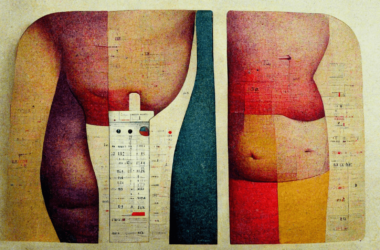Standing desks are the latest employee wellness innovation to sweep through workplaces. While student life is typically more active than that of the nine to five grind, the majority of McGill students are familiar with the pains—mental and physical—of sitting down to study for hours at a time, seldom standing up, if only to eat or use the bathroom. If successful companies like Google and Facebook offer standing desks to their employees, then perhaps McGill ought to consider sit/stand hybrid study spaces for its students as well.
The physiological detriments of sitting down for extended periods of time are numerous. Studies have shown an association between occupational sitting and cancer, while others have shown that sedentary behaviour leads to compromised metabolic health and higher mortality risk. In contrast, sitting/standing hybrid workstations have been found to combat the health consequences of sitting for long periods of time by increasing caloric expenditure. While the physical consequences of an excessive sedentary lifestyle have been well-documented, there has been a more recent shift in focus to the /mental/ impact of standing on cognitive functioning, memory, and focus, making the case for the introduction of standing desks in schools and workplaces.
In an experiment conducted at the University of Leeds, young adults and children showed improvements in task completion time while standing, as opposed to sitting. Children were tested on their ability and speed in conducting motor tasks involving tracking, aiming, and tracing dots on a tablet with a stylus. Sample subjects performed each activity twice: The first while sitting, and the second while standing, which was performed one week after the former. Those tested showed faster completion times of all motor tasks conducted while standing. The results support the theory that the postural demands of standing improve manual control and fine-motor tasks.
While there is evidence of a correlation between standing and improved cognitive performance in controlled tests, the use of standing desks in academic settings is not only shown to be feasible, but also beneficial for students. For example, a neurocognitive study on freshman high school students conducted at the Texas A&M School of Public Health found a significant association between the long-term use of standing desks and advances in executive function—that is, the processes of managing oneself and one's resources in order to achieve a goal. Improvements were also observed in working memory, which is short-term memory dealing with conscious perception and linguistic processing. Furthermore, researchers saw increases in brain activation during completion of various motor tasks before and after the long-term use of standing desks.
Standing while working was found to be equally beneficial in a workplace. When tested in real offices, many employees reported improved posture and increased energy and alertness while working. In a study based in Sydney, Australia, trials of randomized employees were given the option to stand while working at sit-stand hybrid workstations. Participants reported that standing helped alleviate the post-lunch energy slump, encouraged face-to-face interaction between colleagues, and reduced feelings of restlessness. Most office workers who were interviewed saw the option to stand while working as an enhancement to their office experience.
As the school year progresses, the McGill student body is gearing up for the work to pile up and the exhausting studying that follows. Many students spend hours at a time in campus libraries, often placing physical and mental health on the backburner. To make matters worse, McGill’s libraries currently lack the space and accommodations for students to experiment with standing while studying. The scientifically proven improvements in memory, efficiency, and executive functioning while standing to study suggest that this option should be seriously considered in any of McGill’s future library improvement efforts.









Beautiful post with great content. Absolutely loved the writing style and theme. Keep posting awesome stuff like this and inspiring people. Have a great day!